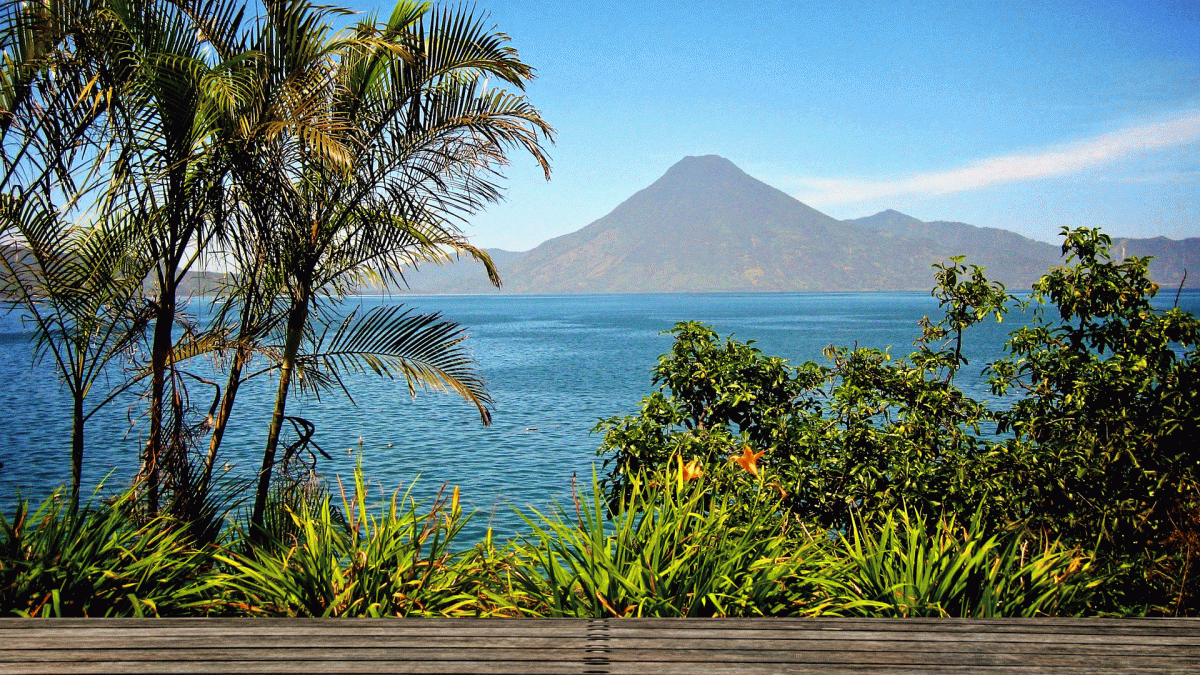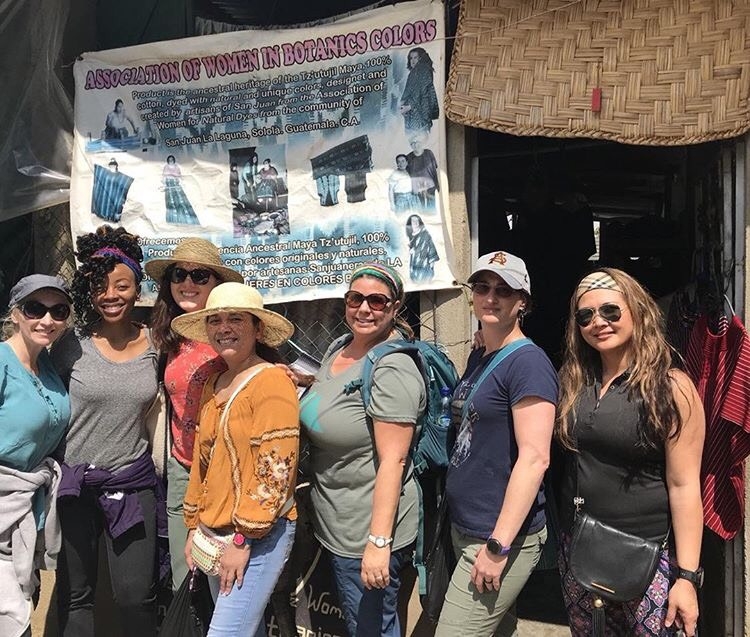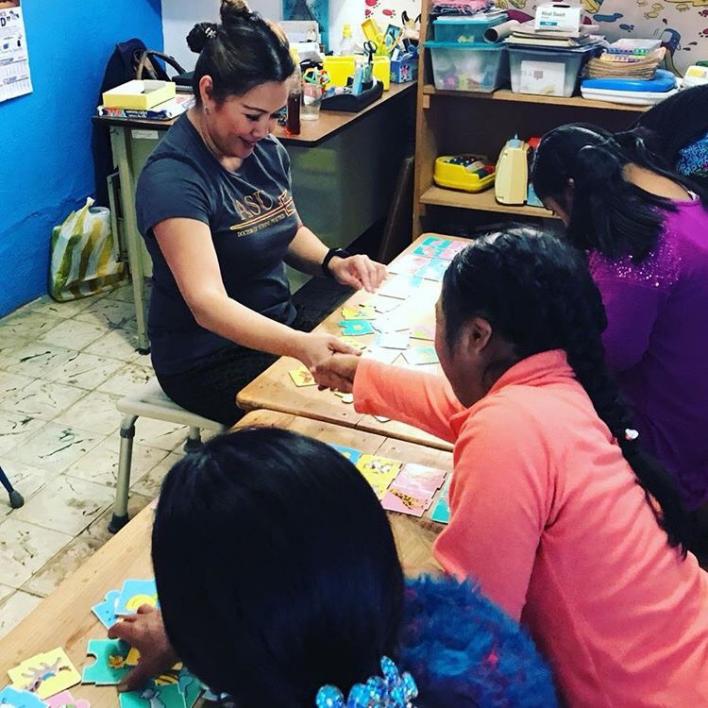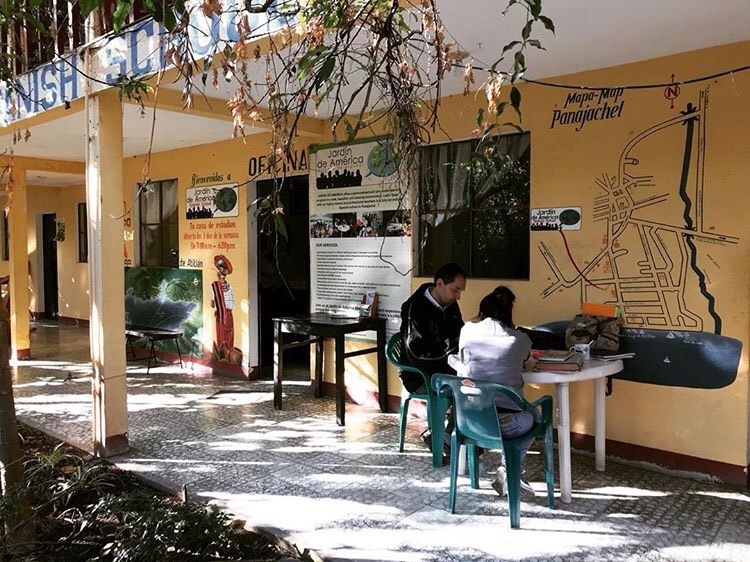Seeking a global health perspective, a group of seven nurses enrolled in the Doctor of Nursing Practice (DNP) program at the College of Nursing and Health Innovation at Arizona State University designed their own clinical residency and language-immersion experience in Guatemala.
“I had been researching doing an immersion for several years and been in contact with Jardín de América, a total-immersion Spanish school, and it just seemed like the timing was right to be able to do this during school, before I get into my career and don’t really have the time off to do an immersion,” DNP graduate Tanya Carroccio said.
Earning credit for the trip
When they learned about the opportunity, six of her classmates wanted to participate. That’s when Carraccio brought the idea to DNP faculty at the college.
Specifically, she wanted to know if this global health experience and medical volunteer work could be applied toward some of their program’s clinical residency requirements.
The DNP program director and faculty were impressed with the research, thought and effort the students put into making this idea a reality, but there were some practical bridges to cross in order for the group to receive credit for the trip.
“The students were required to outline their objectives for the experience and how it met curriculum and professional goals,” said Diane Nuñez, DNP clinical associate professor.
Once she received the outline from the students, Nuñez said it was clear that the trip would definitely meet the core content requirements of the program.
“These students have, in a sense, designed their own learning immersion through direct engagement with a select population," Nuñez said
With that, the faculty and associate dean approved clinical residency credit for the trip.
With a green light from the college and their individual preceptors, they began tackling the logistics of the trip, which would take them to the remote city of Panajachel, Guatemala, for two weeks in early March.
Thanks to the flexibility of the faculty, they were able to complete assignments ahead of time, allowing them to focus on their clinical work and immersion classes while abroad.
Tanya Carroccio, Carol Simpson and Richelle Miller describe their experience in Guatemala.
Day-to-day in the clinics
Once on the ground in Guatemala they almost immediately got to work. The seven students split up into three groups in order to volunteer at different clinics.
“Basically from 8 a.m. to noon for two weeks that’s what we did: work in the clinics. The patients were all Spanish-speaking, and they were very grateful to have us there,” said Miller, a DNP graduate and trip participant.
Miller worked at a special-needs clinic seeing patients who have Down syndrome, cerebral palsy and other neurological disabilities.
Another group worked at a public clinic providing vaccinations, diabetes management and other services one might expect to find at a primary-care or urgent-care clinic. The final group volunteered at an orthopedic facility.
“These students have … designed their own learning immersion through direct engagement with a select population."
— Clinical Associate Professor Diane Nuñez
Because they were working in a high-poverty, rural community, the clinics were at times lacking in supplies. In some cases, basic medical necessities like antibiotics, gloves and even gauze were unavailable.
“Most of the stuff was donations,” Carroccio said. “It gave us a true appreciation for what we have that others may not.”
In fact, the group was so moved by the needs at these facilities they decided to donate as well, buying medical supplies with their own money in order to help out.
Treating patients in the clinical setting was just the first part of their day. After a break to have lunch with their host families, they continued with four hours of Spanish class.
Spanish immersion
The level of Spanish-speaking and comprehension skills the DNP students had before this experience varied. Some had basic abilities, and others were a bit more advanced.
“It was just amazing, and I feel like I overcame some barriers and I plan to continue learning,” said Simpson, a beginner-level Spanish speaker. Simpson said their starting skill level didn’t matter because the instructors were really good at adapting to each individual’s proficiency and working with them from there.
The language immersion aspect was a key motivator for everyone on this trip.
Because Spanish is a major language in the Southwest, knowing at least some medical terms can make a huge difference when it comes to understanding and communicating with patients they care for here at home.
“When they’re in a dire situation, they’re going to revert to their native language so it’s very, very helpful,” Simpson said.
Taking in the sights
Volunteering in clinics and improving their Spanish skills was absolutely the focus of the trip, but the group was able to take some time to explore and enjoy the rich Guatemalan culture.
Panajachel is on the north shore of Lake Atitlán and is about 75 miles west of Guatemala City, the country’s capital.
The nurses visited Antigua and one of the nearby volcanoes, months ahead of the deadly eruptions that devastated the area in June.
All of them were in awe of the history and breathtaking beauty surrounding them throughout their time in and around Panajachel.
Trip has lasting impact
Each of the women came away from this two-week clinical and immersion program changed and inspired to incorporate the experiences and understanding they gained as a result into their own practice.
“You get to see people as they live, and there’s a lot of value in that, in terms of how you understand them, how you treat them,” Simpson said. “Showing respect for their ideas of what good medical care is and incorporating that into your practices so they feel like they’ve been listened to, respected and receive good care.”
“We fell in love with the people. … The clinic staff, patients, our host families, our instructors at Jardín de América — even the people in the streets, the vendors, we know them by name,” Miller said.
The students encourage future DNP students to think outside the box when it comes to clinical hours and take advantage of the flexibility within the program to pursue a global experience.
For those who don’t want to start from scratch by creating an experience from the ground up, you can always follow in this group’s footsteps with a trip to Guatemala, Carrocio said.
“It takes a little bit of research, but fortunately we have a great foundation because we’ve already been to the school, we know the host family, so we say, just go for it!”
Top photo: Lake Atitlán in Guatemala. Photo courtesy of marcoreyes/Pixabay
More Health and medicine

Reducing waste in medical settings
Health care saves lives, but at what cost? Current health care practices might be creating a large carbon footprint, according to ASU Online student Dr. Michele Domico, who says a healthier…

ASU offers bilingual counseling to Spanish speakers
Arizona is one of the five states in the nation with the highest percentage of Hispanic residents, according to the U.S. Department of Health and Human Services Office of Minority Health, and …

College of Health Solutions launches first-of-its-kind diagnostics industry partnership to train the workforce of tomorrow
From 2007 to 2022, cytotechnology certification examinees diminished from 246 to 109 per year. With only 19 programs in the United States, the cytology workforce that stands at the front line of…





